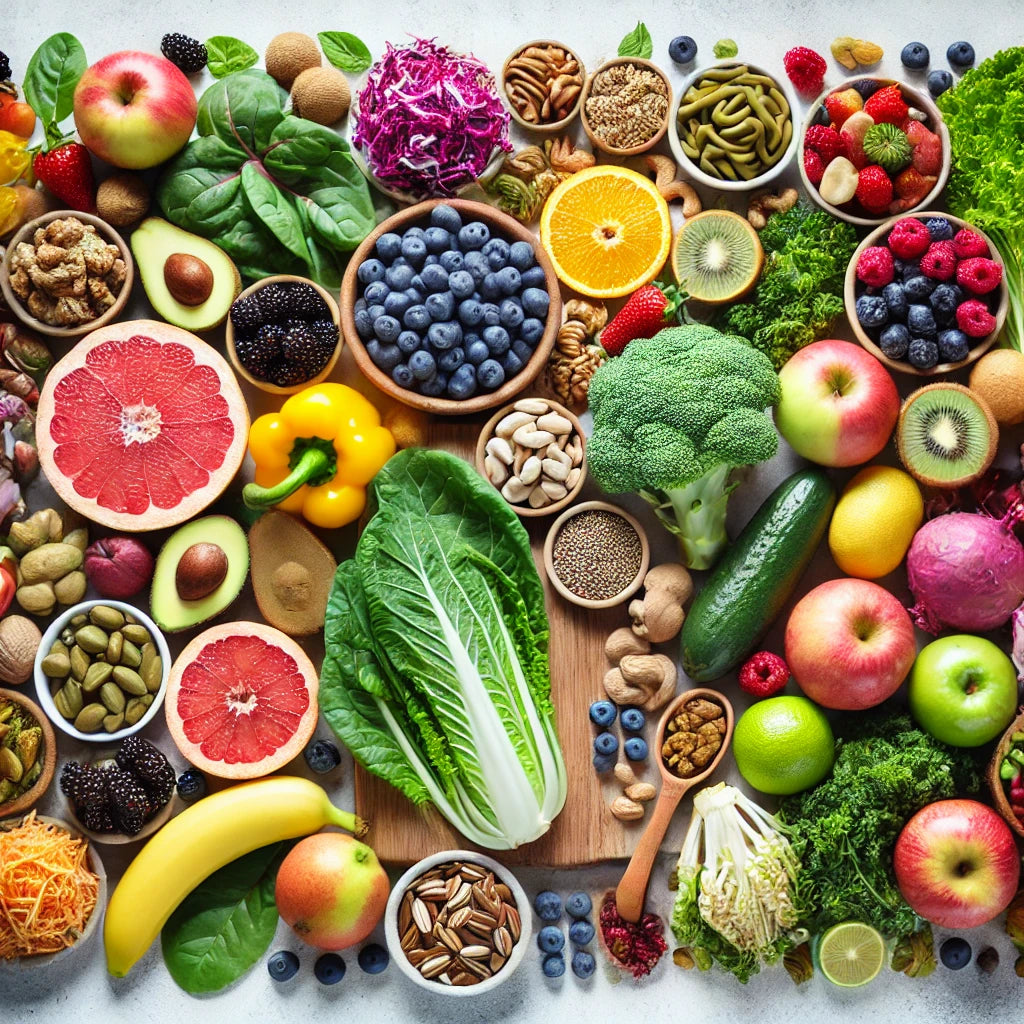News
Unlock Your Genetic Potential with the Epigenetic Diet
anti-inflammatory diet antioxidants cruciferous vegetables diet and health disease prevention DNA methylation epigenetic diet epigenetics folate gene expression genetic potential gut health healthy aging longevity methylation nutrient-dense foods nutrition and genetics omega-3s personalized nutrition polyphenols
Our genetics have long been seen as the blueprint of who we are, influencing everything from our physical appearance to our health risks. However, recent research in the field of epigenetics reveals a groundbreaking insight: our genes are not set in stone. They can be switched on or off by various factors, including our environment, lifestyle, and especially, our diet. This means that what you eat doesn’t just fuel your body—it may influence how your genes express themselves, which could have profound effects on your health and longevity.
An epigenetic diet incorporates foods and nutrients known to impact gene expression. This approach empowers individuals to make dietary choices that support the best possible genetic expression, potentially reducing the risk of diseases, improving metabolism, and even slowing the aging process. This article delves into the science behind epigenetics, examines foods that support beneficial gene expression, and offers actionable steps to help you unlock your full genetic potential through your diet.
Eat Raw, Feel Great: The Gut-Healing Power of Raw Foods
digestive balance digestive health energy boost enzymes in raw foods fermented foods fiber-rich diet fresh fruits gut bacteria gut health gut microbiome healing foods inflammation leafy greens natural foods organic diet probiotics raw diet raw food recipes raw foods sprouted grains
Feeling vibrant and energized can often trace back to a healthy, balanced gut. One of the most effective ways to achieve this balance is by integrating raw foods into your diet. From boosting beneficial bacteria to providing essential enzymes, raw foods can nourish your gut and support overall wellness. Understanding the role that raw foods play in gut health can help you make simple yet powerful dietary changes that will leave you feeling great inside and out.
Raw foods are rich in fiber, natural enzymes, and nutrients that help balance the digestive system. Unlike processed foods, which can harm gut health, raw foods often have a cleansing effect. For anyone looking to enhance their digestion, reduce inflammation, and cultivate a healthier lifestyle, exploring raw food options may hold the key to transformation.
Power Up Your Life: The Role of Mitochondria in Chronic Fatigue Syndrome
antioxidants ATP production B vitamins cellular energy CFS chronic fatigue syndrome CoQ10 diet for fatigue energy production energy support fatigue management low-intensity exercise magnesium mind-body mitochondria mitochondrial dysfunction mitochondrial health omega-3 fatty acids oxidative stress stress reduction
Chronic Fatigue Syndrome (CFS), known for its unrelenting exhaustion, impacts countless individuals worldwide. While the exact causes of CFS are complex, a growing body of research points to the mitochondria as central to understanding and potentially managing this condition. These tiny but powerful energy factories in our cells play a key role in generating energy, and when they are not functioning optimally, fatigue can set in quickly and deeply. Learning more about the mitochondria’s role in CFS can reveal new ways to support energy levels and improve quality of life for those impacted.
Understanding how mitochondria work, and why they’re often affected in CFS, can open doors to new treatment strategies. From lifestyle choices to nutrition and supplementation, many methods can support mitochondrial health. With the right tools, it’s possible to give your mitochondria a boost and, in turn, take a step toward improving energy levels and reducing the symptoms of chronic fatigue.
Supercharge Your Weight Loss with Superfoods: Ultimate Guide
antioxidants avocado health benefits berries for weight loss chia seeds benefits diet tips fiber for weight loss green tea metabolism greens for weight loss healthy eating healthy fats healthy weight loss foods meal prep superfoods metabolism boosting foods nutrient-dense foods superfood smoothies superfood snacks superfoods benefits superfoods for weight loss weight loss superfoods weight loss tips
Superfoods are widely celebrated for their nutritional density, antioxidant content, and unique ability to support overall health. When it comes to weight loss, certain superfoods can be invaluable allies, helping to boost metabolism, increase satiety, and improve energy levels. Imagine achieving your health goals not just by eating less but by nourishing your body with foods designed to supercharge your journey.
This guide dives into some of the best superfoods for weight loss, providing insight into their individual benefits, how to incorporate them into your daily routine, and tips on maximizing results. Understanding how to integrate these foods into a balanced diet can help you reach your weight loss goals in a sustainable, enjoyable way.
How Much Walking Do You Need to Improve Heart Health?
brisk walking cardiovascular walking benefits cholesterol reduction daily walking heart exercise for heart health healthy heart habits heart health exercise high-intensity walking improve heart health moderate intensity steps for heart walking benefits heart walking blood pressure walking for heart health walking intensity walking routine
Walking is one of the simplest, most accessible ways to strengthen your heart and support cardiovascular health. With no need for special equipment or extensive training, walking provides a gentle yet effective workout for the heart, helping to reduce blood pressure, cholesterol levels, and overall risk of cardiovascular disease. The best part? It’s an activity that fits easily into almost any lifestyle and fitness level.
This guide explores how much walking you need to improve heart health, types of walking to consider, and strategies for making the most of each step. Whether you’re a seasoned walker or just starting, you’ll find practical advice here for creating a heart-healthy walking routine.





